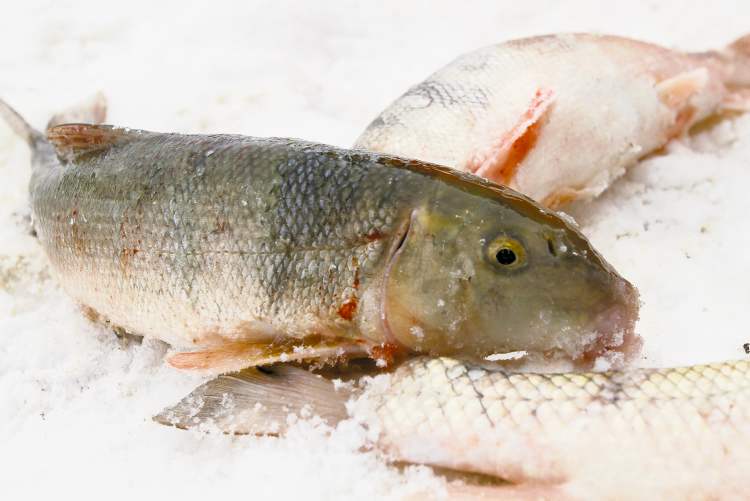Bycatch waste being studied
Advertisement
Read this article for free:
or
Already have an account? Log in here »
To continue reading, please subscribe:
Monthly Digital Subscription
$1 per week for 24 weeks*
- Enjoy unlimited reading on winnipegfreepress.com
- Read the E-Edition, our digital replica newspaper
- Access News Break, our award-winning app
- Play interactive puzzles
*Billed as $4.00 plus GST every four weeks. After 24 weeks, price increases to the regular rate of $19.95 plus GST every four weeks. Offer available to new and qualified returning subscribers only. Cancel any time.
Monthly Digital Subscription
$4.99/week*
- Enjoy unlimited reading on winnipegfreepress.com
- Read the E-Edition, our digital replica newspaper
- Access News Break, our award-winning app
- Play interactive puzzles
*Billed as $19.95 plus GST every four weeks. Cancel any time.
To continue reading, please subscribe:
Add Free Press access to your Brandon Sun subscription for only an additional
$1 for the first 4 weeks*
*Your next subscription payment will increase by $1.00 and you will be charged $16.99 plus GST for four weeks. After four weeks, your payment will increase to $23.99 plus GST every four weeks.
Read unlimited articles for free today:
or
Already have an account? Log in here »
Hey there, time traveller!
This article was published 24/04/2013 (4686 days ago), so information in it may no longer be current.
THE Selinger government says it’s funding research that could help reduce the widespread practice of wasting rough fish.
Millions of kilograms of edible fish are dumped on Manitoba lakes every year because there’s either no market for them or the prices are too low to justify processing and shopping them. Increasing consumer awareness of this practice threatens the commercial viability of fish caught in Manitoba waters.
The province has launched an eco-certification effort in the hopes of reducing the bycatch in all of its fisheries. It will provide $90,000 in seed money for research into the export of roe taken from white sucker, the species commonly known as mullet.

“Wasting of fish is unacceptable in my view. It’s wrong on ethical and ecological grounds,” Conservation and Water Stewardship Minister Gord Mackintosh said Monday. “Mullet is the largest bycatch species. There is some good thinking that based on the success of marketing pike roe, there’s optimism that could lead to other developments for mullet.”
The Freshwater Fish Marketing Corporation will work with food-development researchers in Portage la Prairie and federal export officials, Mackintosh said. They hope to figure out the best time to harvest mullet roe and how to handle eggs from the species, whose egg sacs are located close to their digestive tracts and thus are prone to contamination if the sacs are accidentally cut.
— Kives



